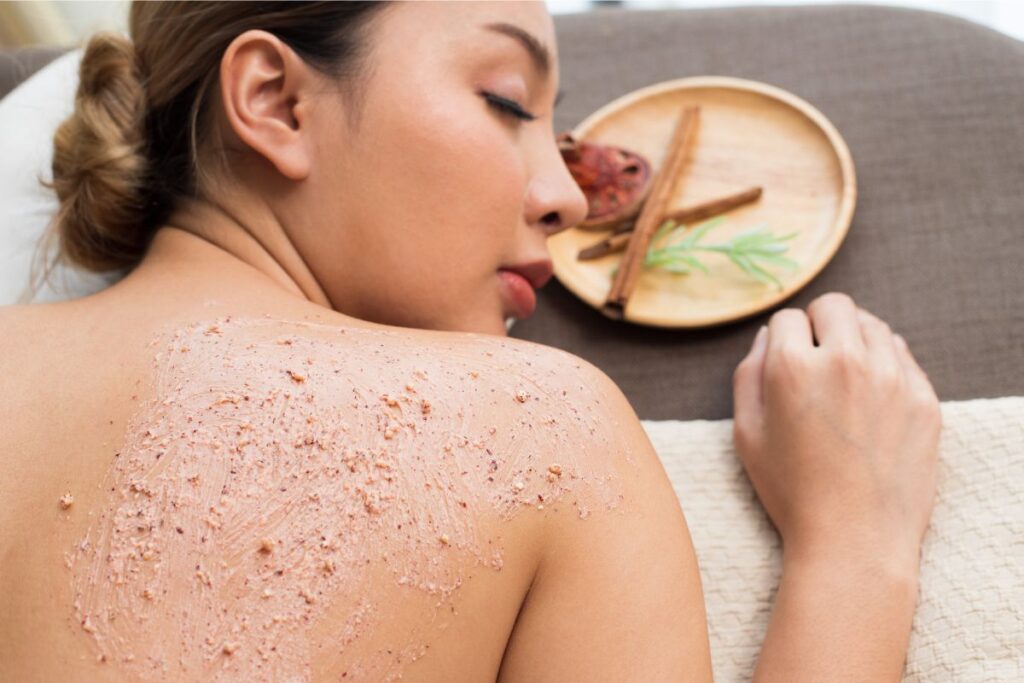Dermatological Risks in Traditional Medicine
Many Ayurvedic and traditional Chinese medicines treatments may trigger skin reactions ranging from slight discomfort to severe allergic reactions, even though herbal remedies are frequently advertised as having clear and healthy skin. These supplements include common contaminants or irritants that might cause immunological and fatal allergic reactions.
Case Study: Severe Dermatitis from Ayurvedic Skincare Herb
A patient developed widespread dermatitis after using an Ayurvedic skincare formulation containing Neem and Manjistha. She presented with symptoms including redness, swelling, and blistering and was later diagnosed with contact dermatitis. The case, published in the Journal of Dermatological Treatment, linked her symptoms to a high concentration of Neem oil, which can be a skin irritant in susceptible individuals1.
Skin and Allergy Risks Associated with Certain Herbs:
1. Contact Dermatitis and Allergic Reactions:
Neem and Tulsi, common in Ayurvedic skincare, can cause dermatitis. A study in Contact Dermatitis found that Neem caused skin reactions in 10% of users with sensitive skin.
2. Photosensitivity from Psoralen-Containing Herbs:
Psoralen, found in TCM herbs like Bu Gu Zhi, increases skin sensitivity to sunlight, which can lead to severe burns and hyperpigmentation.
3. Anaphylaxis and Severe Allergic Reactions:
Some TCM herbs contain proteins that can trigger severe allergic responses, such as anaphylaxis. Ginseng, for example, has been associated with allergic reactions, including breathing difficulties. A review in the Journal of Allergy and Clinical Immunology outlined the potential for anaphylactic reactions from certain herbal products3.
Research and Regulatory Concerns:
● Prevalence of Dermatological Reactions: A study in Dermatology Research and Practice found that around 15% of herbal skincare users reported adverse skin reactions, particularly from neem, turmeric, and other allergens4.
● Regulatory Guidance: The FDA has warned about potential allergens in imported herbal skincare, urging consumers to be careful when using untested products.
Disclaimer:
This article aims to raise awareness about the risks of skin and allergy reactions to herbal supplements. It does not defame traditional practices but encourages caution. Always consult a dermatologist if you experience skin reactions to any herbal product.
How HealthPil Can Help:
With HealthPil, you can consult dermatologists to help you understand which herbal products are safe for your skin type. Access trusted specialists for reliable advice on skin health.
Footnotes
- Zhang, S., et al. “Contact Dermatitis from Ayurvedic Skincare Products.” Journal of Dermatological Treatment, 2020.
- Kumar, R., et al. “Neem and Skin Reactions: A Clinical Review.” Contact Dermatitis, 2019.
- Lee, K., et al. “Herbal Medicines and Anaphylaxis Risks.” Journal of Allergy and Clinical Immunology, 2021.
- Smith, A., et al. “Adverse Skin Reactions to Herbal Skincare.” Dermatology Research and Practice, 2019.

